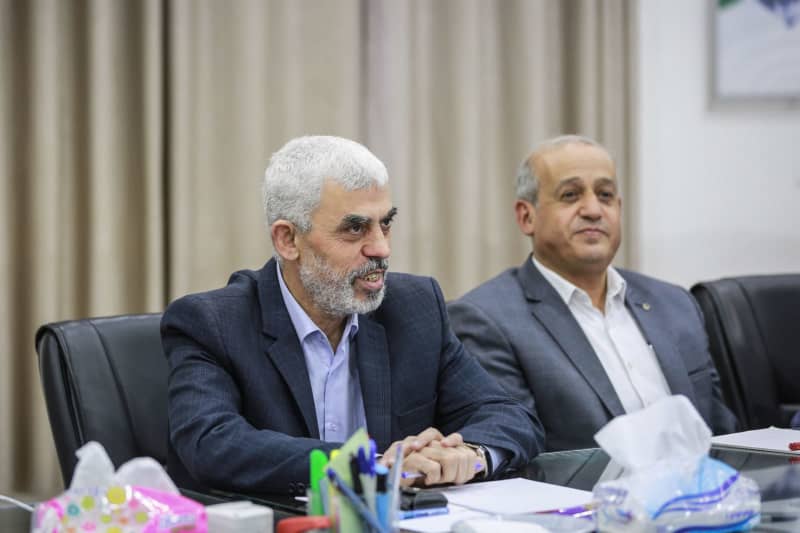Yehya al-Sinwar, the leader of Hamas in Gaza, was reportedly killed during an unexpected encounter with Israeli soldiers while they were conducting an operation in Rafah, a city in southern Gaza Strip. According to multiple Israeli media sources, the confrontation occurred when al-Sinwar and two other armed Palestinians were engaged by Israeli forces. Initial reports indicated that the soldiers did not recognize al-Sinwar until after he was deceased, highlighting the chaotic nature of the skirmish. The Israeli military confirmed the death of all three men, stating that they had intensified operations in the southern region of Gaza due to intelligence suggesting the presence of high-ranking Hamas members.
During the operation in which al-Sinwar was killed, the Israeli soldiers discovered that the deceased individuals were in possession of significant amounts of cash and counterfeit passports. In addition, al-Sinwar was found wearing a vest equipped with hand grenades, indicating his readiness for combat and the potential threat he posed during such encounters. The army, specifically units from the 828th Brigade, acknowledged their role in the incident, labeling the three men as terrorists perpetrating acts against Israeli interests. The Israeli government has ramped up its military activities in southern Gaza recently, responding to perceived threats and sentiment that Hamas leadership was attempting to operate from this location.
Yehya al-Sinwar had been a prominent figure in Hamas, known for his leadership role in spearheading the group’s military and political strategies in the region. His death represents a significant setback for Hamas, as it not only removes a key leader from the organization but also affects morale and operational capabilities among its ranks. The timing of Netanyahu’s government’s military activity, aimed at dismantling Hamas leadership and infrastructure, has raised questions about the long-term implications of such actions on the already volatile Israeli-Palestinian conflict.
Al-Sinwar’s background is notable, having previously been imprisoned by Israel for a number of years before rising to leadership positions within Hamas due to his strong ties and influence. His strategies often focused on armed resistance against Israel, advocating for military action as a means of achieving Palestinian objectives. This has set the stage for continuous conflict, highlighting the cycle of violence in the region that routinely sees escalations from both Israeli and Palestinian actors in response to each other’s actions. His assassination could potentially ignite further clashes as Hamas seeks to respond to the loss of a leader.
The Israeli government’s confirmation of al-Sinwar’s death coincides with growing tensions in the Gaza Strip and beyond, as both the military responses and political ramifications will undoubtedly shape future engagements. Israeli Foreign Minister Israel Katz’s announcement further solidified the notion that operations targeting Hamas leaders will continue, an approach aimed at crippling their organizational structures. Observers are now closely monitoring the reactions from Hamas and the broader Palestinian society as they navigate this unfolding development.
The repercussions of this incident are multifaceted. It stands as a grim reminder of the ongoing conflict and the challenges in achieving a peaceful resolution between Israel and Hamas. Al-Sinwar’s legacy and influence within the movement may lead to power struggles in the wake of his death, impacting the overall dynamics of Hamas’ strategy against Israel. As both sides brace for the aftermath of this confrontation, it may serve to exacerbate the existing tensions and lead to even more military engagements in the coming days.

